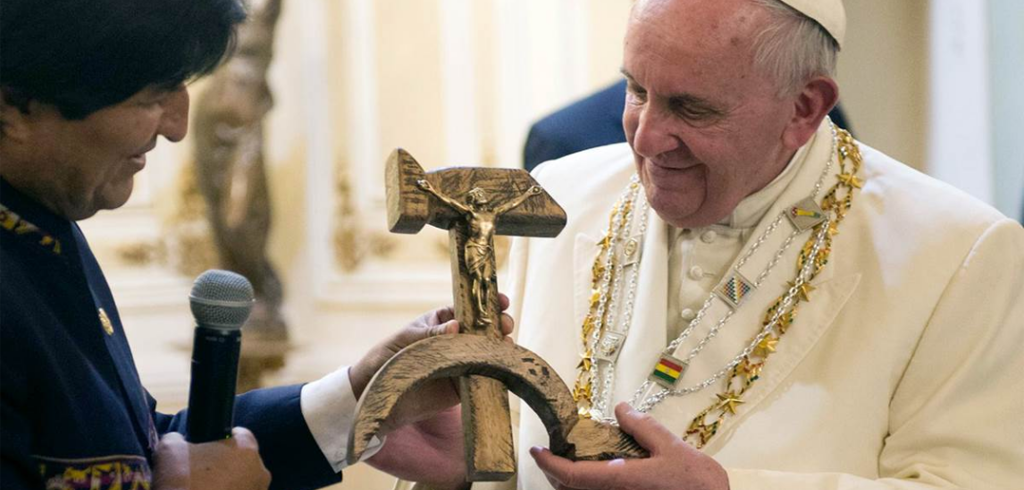
According to The Gospel Coalition’s Carl Trueman, someone can’t be a Marxist if they’re a theist. According to Jesuits – Roman Catholic priests in the order founded by Ignatius Loyola – that’s not true. A Romanist magazine operated by American Jesuits claimed this week in an article entitled The Catholic Case for Communism that the economic view postulated by Karl Marx was the Biblical view.
Of course, Jesuits have long been Marxists and helped to found the concept of Social Justice upon Marxist precepts. Although Karl Marx hated God and aimed to “cast God from Heaven, and then sue him,” his followers have found ingenious ways to wed his philosophy with theism.
America: The Jesuit Review posted the article, The Catholic Case for Communism, on Tuesday. Many advocates for Social Justice claim that accusations of ties between Marxism and the Jesuit order are mere conspiracy theory (and their view is astoundingly ignorant of history, and woefully unlearned regarding the origins of Social Justice in South America and the formulation of the concept at the First Lausanne Conference on World Evangelization.
Written by Dean Dettloff, the article states, “Christianity and communism have obviously had a complicated relationship. That adjective ‘complicated’ will surely cause some readers to roll their eyes. Communist states and movements have indeed persecuted religious people at different moments in history. At the same time, Christians have been passionately represented in communist and socialist movements around the world. And these Christians, like their atheist comrades, are communists not because they misunderstand the final goals of communism but because they authentically understand the communist ambition of a classless society.”
The article acknowledges the rich history between Marxists and theists (paging Dr. Trueman)…
Despite and beyond theoretical differences, priests like Herbert McCabe, O.P., Ernesto and Fernando Cardenal, S.J., Frei Betto, O.P., Camilo Torres and many other Catholics—members of the clergy, religious and laypeople—have been inspired by communists and in many places contributed to communist and communist-influenced movements as members.
He continues…
Closer to home and outside of armed struggles, Christians are also present today in communist movements in the United States and Canada. Whatever hostilities may have existed in the past, some of these movements are quite open to Christian participation now. Many of my friends in the Party for Socialism and Liberation, for example, a Marxist-Leninist party, are churchgoing Christians or folks without a grudge against their Christian upbringing, as are lots of people in the radical wing of the Democratic Socialists of America.
The Jesuit order was founded as a Counter-Reformation insurgency, designed to hunt down and persecute Protestant believers, and later designed to infiltrate the New World in an attempt to make converts in the Western Hemisphere faster than the Romanists were losing converts to growing Protestantism in Europe. Pope Francis is the first Pope belonging to the Jesuit order, and experts have long considered his rhetoric to be Marxist in nature.
Aside from their theoretical and ideological differences, Marxist and Jesuits have a similar goal; globalism and a One World Order. This seems to be the tie that binds the two together.














